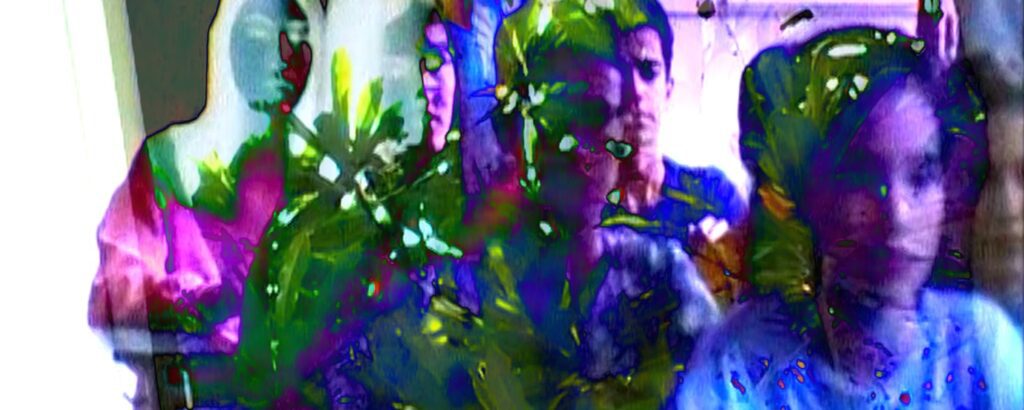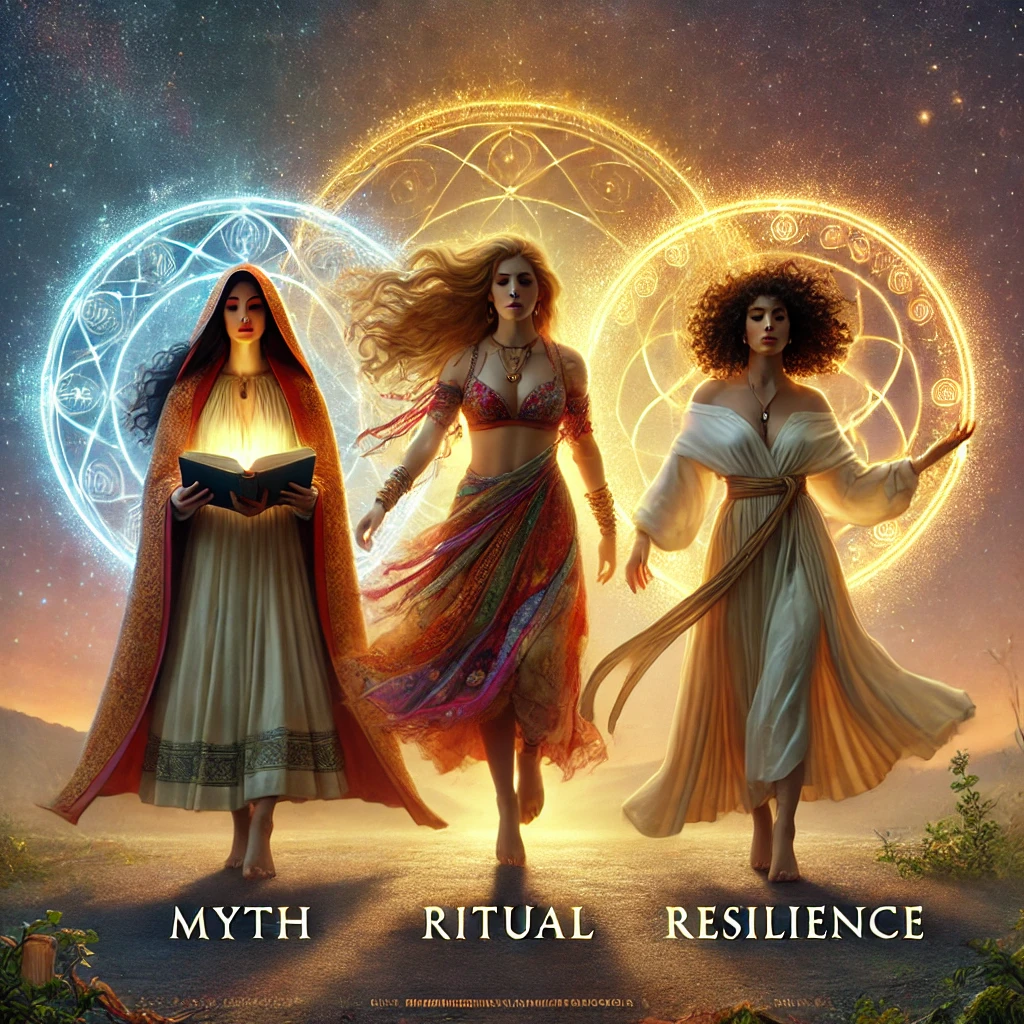Collective Summoning: A Trio of Myth, Ritual, and Resilience
Collective Summoning is a stunning anthology of three short films—A Night We Held Between, No Exorcism Film, and Razeh-Del. Together, they explore themes of myth, memory, and resilience, revealing how cultural narratives shape and sustain us. This 78-minute collection takes us from Palestinian landscapes filled with longing to Thailand’s cosmic reflections and Iranian girls dreaming of the impossible. For me, this anthology felt like a masterclass in storytelling, reminding us of the universal strength found in memory and transformation.
A Night We Held Between: Palestinian Landscapes and Longing
Directed by Noor Abed, A Night We Held Between is a poetic 30-minute exploration of grief, memory, and resistance. Set in the heart of Palestinian landscapes, the film uses archival songs, photographs, and myth to create a deeply moving reflection on cultural loss and resilience.
What struck me most was the way the land itself became a character. The ruins, caves, and open spaces seemed to echo the collective grief and strength of the Palestinian people. Abed’s ability to intertwine personal and collective narratives was breathtaking, reminding me of A Fidai Film, where archival fragments were similarly transformed into tools of reclamation.
Through its lingering camera work and haunting sound design, A Night We Held Between captures the weight of absence without losing sight of the enduring spirit of resistance.
No Exorcism Film: Thai Mysticism and Cosmic Realities
Komtouch Napattaloong’s No Exorcism Film offers a striking contrast with its vibrant 20-minute reflection on cosmology and mysticism. Set in modern Thailand, the film blurs the boundaries between the material and the metaphysical, exploring the ways unseen forces shape our reality.
The film’s visuals are rich and layered, with cosmic imagery that feels both unsettling and mesmerizing. The dialogue, while sparse, is deeply evocative, inviting viewers to question their own understanding of the world around them.

This film also reminded me of Non/Living, where microorganisms became metaphors for larger themes of decay and renewal. Both works challenge us to reconsider what we think we know about the invisible forces that govern life.
Razeh-Del: Iranian Girls and Impossible Dreams
Directed by Maryam Tafakory, Razeh-Del is a poignant 28-minute exploration of ambition, possibility, and the societal barriers faced by women in 1990s Iran. Inspired by a letter two girls sent to the first-ever women’s newspaper in Iran, the film imagines their dream of creating an impossible film while waiting for their voices to be published.
Tafakory blends archival material with poetic storytelling to capture the hopes, frustrations, and resilience of these young women. Their longing to create something larger than themselves felt deeply personal to me, reminding me of The Ballad of Suzanne Césaire, which also celebrated women navigating restrictive cultural frameworks.
This film is a testament to the power of imagination and storytelling as tools for resistance and self-expression.
Themes That Unite the Anthology
What ties these three films together is their shared exploration of memory and resilience. Each film, while deeply rooted in its cultural context, speaks to universal themes of longing, transformation, and storytelling as acts of resistance.
The Palestinian landscapes of A Night We Held Between, the cosmic imagery of No Exorcism Film, and the dreams of Razeh-Del all serve as metaphors for the ways communities navigate grief and hope. Together, these films create a tapestry of narratives that feel both deeply personal and globally relevant.
Cinematic Techniques and Emotional Depth
Each director employs unique techniques to tell their story. Abed’s use of archival material in A Night We Held Between brings immediacy and intimacy to her narrative. Napattaloong’s vivid, almost surreal visuals in No Exorcism Film create a dreamlike quality that lingers in the mind. Tafakory’s blend of real and imagined elements in Razeh-Del captures the yearning and creativity of its young protagonists.
For me, the emotional impact of these films was profound. Each one offered a distinct perspective on the power of memory and storytelling, leaving me reflecting on the ways we preserve and reinterpret our histories.
Why Collective Summoning Is a Must-Watch
Collective Summoning is more than just a collection of films—it’s a deeply moving exploration of cultural resilience. Each film invites viewers to step into a world where stories are both a source of strength and a call to action. For me, this anthology was a reminder of the universal power of storytelling to connect, transform, and inspire.
If you appreciated the reclamation of history in A Fidai Film or the poetic exploration of resilience in A Stream of Echoes, Collective Summoning will resonate deeply. It’s a must-watch for anyone who values the beauty and strength found in collective narratives.
Discover more from DG Speaks
Subscribe to get the latest posts sent to your email.





